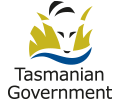8.7 Media relations and spokespersons
Principles
For many Tasmanians, media channels such as newspapers, radio, television and the internet are a primary source of news and information about government policies, programs and services.
The media play a significant role in reporting and commenting on government policies, programs and services and it is important that agencies acknowledge and respect this role and the needs of media outlets. While it is not possible to ‘manage’ media, establishing good working relationships with media can provide another useful channel for communicating with the community.
Ministers are accountable for presenting and explaining government policies, programs and services to the public. Ministers are the principal spokespersons for the Tasmanian Government and its agencies but may assign other people to speak in an official capacity on issues or subjects for which that Minister has responsibility and expertise.
Policy requirements
With the exception of Cabinet Ministers, no individual is to make a public statement without approval of the statement or the spokesperson by the relevant Minister or head of agency or his/her nominee.
Government roles which may be an exception to this include:
- Police Media and Marketing Unit - when dealing with an operational police matter
- Fire and emergency services - where there is an emergency operational matter such as fire, flood or storm
- Director Public Health - where there is a public health matter
- Statutory office holders - with independence from government such as the Auditor-General, the Anti-Discrimination Commissioner, the Ombudsman, the Courts, the Director of Racing, the Rail Safety Regulator, the Director of Industry Safety and the Transport Commissioner
- particular roles as identified and approved by agencies e.g. Learning Services General Managers and school principals dealing with an operational education issue.
When responding to media enquiries and using government spokespersons, agencies must:
- abide by the Whole of Government Media Protocols issued by the Government Communications Office (GCO) in the Premier’s Office
- establish internal processes and procedures in accordance with the Right to Information Act 2009, for responding to media enquiries and requests that may come directly to their media unit or through the GCO
- identify appropriate spokespersons with the knowledge and/or technical expertise to provide input into media responses or to speak as official representatives of their agency if approved by the relevant Minister or head of agency
- liaise with other relevant agency communications units if a media issue has ramifications for other agencies, e.g. swine flu, critical incidents.
When responding to media enquiries and using government spokespersons, it is recommended that agencies:
- have a designated unit or officer responsible for managing media activities and for liaising with the GCO and their Minister’s Office
- provide in-house or external media training for those managers or staff designated to speak as official agency representatives
- ensure designated spokespersons receive instruction, particularly in media relations, to carry out their responsibilities effectively, including awareness of and respect for:
- privacy rights
- security needs
- matters before the courts
- government policy
- Cabinet confidentiality.
